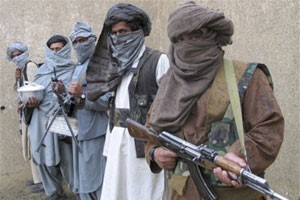 Prevention and suppression of terrorist financing lies at the heart of Security Council resolution 1373 (2001) and promoting and facilitating its implementation is one of the core mandates of the Committee. The resolution requires States to undertake wide-ranging measures aimed at preventing and suppressing terrorist financing. In order to achieve effective compliance, the Committee has encouraged Member States to be guided by the relevant United Nations international instruments, as well as to use the best practices including recommendations of the Financial Action Task Force (FATF).
Prevention and suppression of terrorist financing lies at the heart of Security Council resolution 1373 (2001) and promoting and facilitating its implementation is one of the core mandates of the Committee. The resolution requires States to undertake wide-ranging measures aimed at preventing and suppressing terrorist financing. In order to achieve effective compliance, the Committee has encouraged Member States to be guided by the relevant United Nations international instruments, as well as to use the best practices including recommendations of the Financial Action Task Force (FATF).
The international financial system, represented by the organisations participating here today, is the first line of defence against terrorist financing. The progress that we have been able to achieve so far would not have been possible without the work that FATF, and the FATF-style regional bodies, as well as other international organizations like UNODC, the International Monetary Fund and the World Bank, have undertaken in recent years, in addition to assisting Member States in implementing the UN instruments that tackle terrorist financing, such as the International Convention for the Suppression of the Financing of Terrorism, resolution 1373 (2001), resolution 1267 (1999) and resolution 1989 (2011).
With international community’s concerted efforts spanning over a decade, the use and abuse of the formal banking system is more difficult and more expensive for terrorists than ever before. Despite the progress, terrorists continue to exploit advances in technology and have been able to find ways and means in raising and moving funds. It is therefore, imperative for the Member States and the international community to continue to update and strengthen the legal, regulatory and institutional framework in combating this challenge.
The Committee regularly addresses counter-financing of terrorism issues relevant to the implementation of resolution 1373 (2001) through dialogue with Member States on legal provisions; institutional structures; practical applications; human rights issues; and technical assistance needs. Indeed, CTED, acting on behalf of the Committee, is engaged in numerous initiatives which facilitate the delivery of technical assistance to Member States in these areas. The support and participation of the FATF, FATF style regional bodies and relevant international, regional and sub-regional organizations has been crucial to the success of these initiatives and is very much appreciated by the Committee.
FATF is an important and valued partner of the Committee in our common efforts to deal with terrorist financing. It has a leading global role in developing best practices, and promoting the effective implementation of legal, regulatory and operational measures for combating money laundering and terrorist financing.
The Committee also profoundly values the important contribution and regional perspectives that the FATF style regional bodies bring to bear in assisting Member States in meeting this global challenge. Through their unique local knowledge and expertise, these bodies are often best placed to understand the challenges faced in their region and respond effectively to address them.
The Committee recognises that combating the terrorist financing threat is a complex and highly technical undertaking. It is supportive of all efforts to provide assistance to Member States in implementing the UN instruments that tackle this threat in accordance with international law, in particular international human rights law, refugee law, and humanitarian law.
This meeting is intended to contribute to these efforts and provide a forum for a genuinely interactive discussion on the most pressing challenges we face together in our common effort to tackle terrorist financing. It is an opportunity to exchange views, to deliberate on experiences and importantly to identify effective measures that could address these challenges. It is also an occasion to draw attention to best practices including the revised FATF Recommendations and their relevance for the implementation of resolution 1373 (2001) and the relevant capacity building activities and initiatives in this regard.
STATEMENT BY AMBASSADOR H.S.PURI, PERMANENT REPRESENTATIVE OF INDIA AND CHAIRMAN, COUNTER-TERRORISM COMMITTEE AT THE SPECIAL MEETING OF THE COUNTER-TERRORISM COMMITTEE WITH MEMBER STATES AND INTERNATIONAL, REGIONAL AND SUB-REGIONAL ORGANIZATIONS ON
“PREVENTING AND SUPPRESSING TERRORIST FINANCING”
November 21, 2012.